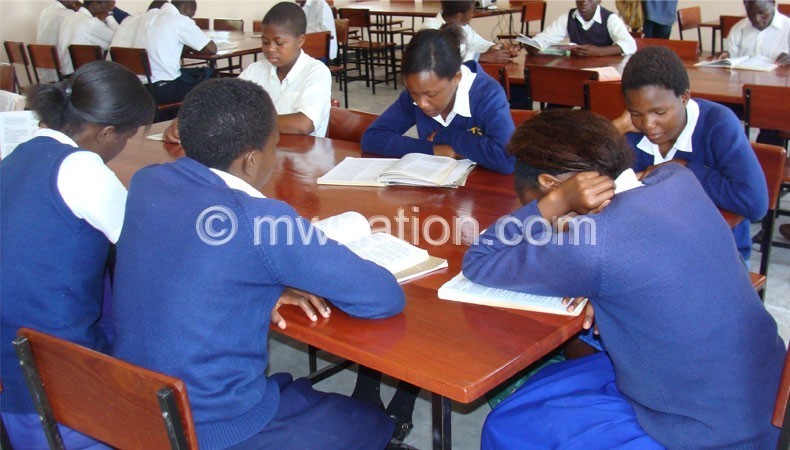Early marriages: A thorn to Malawi girls’ education

education due to early marriages
Talking to 16-year-old Memory Kalambo from the slums of Salisbury lines in Mzuzu about returning to school is like trying to scratch your ear with your elbow.
She has bowed out of school good and prefers to stay in marriage.
Memory glares into space for some time; gets nervously shy and then explains why she cannot go back to school.
The former Standard Eight pupil at Katoto Primary School dropped out at the beginning of this term, when she realised she was pregnant.
Now working as a shopkeeper in Chibavi Township, Memory explains what drove her into an early marriage.
“I did not have necessary materials or support to continue with school,” she explains.
She says since she started menstruating in 2012, her mother never gave her material support she needed apart from food.
Memory explains: “I used to do piece work to support myself before I found a boyfriend to support me. I was hurt when my own mother neglected me and I thought the best way out was to get married.
I am now settled with my 23-year-old husband whom we dated for just over one year.”
Of course, she admits that having a boyfriend impacted negatively on her education.
Memory’s case is not a standalone case. The 2014 Human Rights Watch report says many poor families view young girls as a financial burden, prompting them to marry them off as soon as they can.
But Phallys Kalambo, Memory’s mother has a different version.
Kalambo, who sells charcoal says she did all she could for her daughter to attain good education.
The mother of four explains that she, neighbours and teachers from her school continuously counseled memory on the advantages of education.
The visibly annoyed Kalambo says she does not want to comment on her daughter’s decision because she still cannot believe she got married.
“Even my neighbours do not ask me about her because I take offence and throw insults at them,” she narrates.
She then brings out a shocker: “You know what, when Memory was 14 years old, she got married and I rescued her. This is the second time and I am not following up on her again. This time, she is on her own,” she says.
Deputy head teacher for Katoto Primary School Ollens Msonda says the school authorities noticed that Memory was naughty.
“One evening, I found her with a boy in town. I called her parents and the school’s counsellors talked to her. We tried to keep her in school,” Msonda says.
He, however, says Memory was not a trouble maker in class and one of the quietest girls, though her performance was not above average.
Although the country has a re-readmission policy that allows girls who fall pregnant or drop out due to marriage to continue with school, the Human Rights Watch report says it lacks a comprehensive strategy to address high rates of teen pregnancies.
While the United Nations (UN) data indicates that on average, one out of two girls will be married by her 18th birthday, the report says 50 percent of girls under the age of 18 go into child marriages.
It further says the country has one of the highest rates of child marriages in the world.
“Malawi’s laws do not explicitly prohibit child marriages and there is no set minimum age. The laws also fail to consistently define who a child is.
“Government is yet to enact the Marriage, Divorce and Family Relations Bill, a comprehensive family law developed in 2006 that has stronger protections from child and forced marriage; and provides 18 as the minimum marriage age,” reads the report in part.
Rebecca Phwitiko, Ministry of Education, Science and Technology says government has put in place measures of promoting girls’ education such as the re-admission policy and having partners to support them.






The mother has 4 children including memory. That is where the gist of the matter is. Malawi government let us advocate for family planning if we want to win this battle of ending early marriages. The thing is families are having more children whom they can not adequately take care of. As a result parenting becomes a problem children especially girls are neglected yet they require more needs